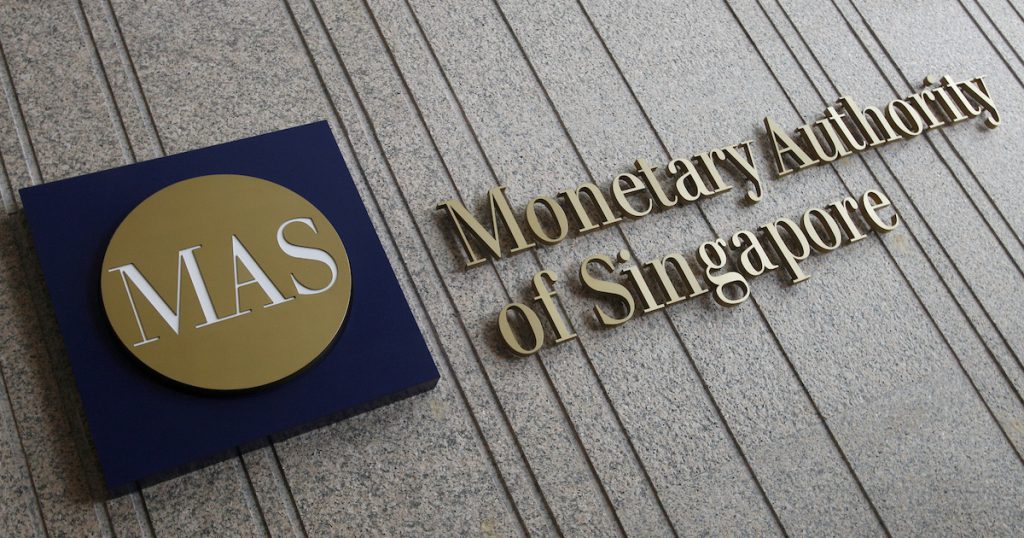The Monetary Authority of Singapore (MAS) released today (July 19) its annual report for 2021 and 2022, which outlines what the central bank has been doing and what it has accomplished over the past year.
At the media conference for the report’s release, MAS managing director Ravi Menon, as well as MAS chairman Tharman Shanmugaratnam commented on the economic outlook for Singapore, as well as shed light on certain MAS policies.
New and improved crypto regulations on the horizon
According to MAS, it has plans to increase the scope of its cryptocurrency regulations to cover more activities and further limit retail investor access to cryptocurrencies.
So far, regulations have been focused on money laundering and terror financing, and many do not cover issues such as consumer protection, market conduct, and reserve backing for stablecoins.
MAS has thus announced that reviews and consultations are underway in order to strengthen regulation in these areas.
The regulatory body has also reiterated its stance that cryptocurrencies are highly risky investments and unsuitable for the retail public.
MAS continues to adopt a balanced approach in fostering sound and sustainable growth of the digital asset ecosystem. It welcomes innovative use of blockchain technology that can enhance efficiency and bring cost effectiveness, including in cross-border payments and trade finance. MAS issues licences to payment service providers that add value to this ecosystem and have strong risk management capabilities.
Given the highly speculative nature of cryptocurrency investments, MAS has also stepped up efforts to warn that such investments are not suitable for retail investors, and since January this year, prohibited the marketing or advertising of digital payment token services to the general public in Singapore.
– Tharman Shanmugaratnam, Chairman of MAS Board
Ravi Menon echoed these sentiments, saying that “the key lesson from the upheaval in the global crypto industry is clear: investing in cryptocurrencies is highly risky.”
He also announced an upcoming Green Shoots seminar, where MAS would share more on its strategies to develop Singapore as a digital asset hub, and offer further clarification on the regulatory position on cryptocurrencies, stablecoins, and all things blockchain.
At the same time, Menon also addressed the crashes of high-profile crypto companies in Singapore.
Citing the crises at Terraform Labs, Three Arrows Capital, and Vauld, Menon stated that none of them were regulated and had little to do with Singapore.
He also assured the public that “MAS and relevant government agencies will take firm enforcement action if any entity is found to be conducting illegal activities or performing regulated activities without a licence. The crypto industry globally is still evolving and regulation is still catching up with industry trends.”
Inflation and monetary policy
Both speakers also addressed inflation as a key concern in Singapore, with Tharman noting that monetary policy has been tightened four times since October 2021 to “ensure medium-term price stability”.
He expressed hope that these moves should slow inflationary pressures, but also warned that they cannot fully mitigate the effects of global inflation, especially in food and energy prices.
Menon also noted that inflationary pressures had already begun to increase during the second half of 2021, and prices had already been on the rise even before the Russian invasion of Ukraine.
Another factor for inflation has been an increased demand for labour, at the same time when labour force participation has not yet recovered from the pandemic.
Both domestic and foreign pressures have meant that inflation is higher than expected, and is expected to get worse before it gets better.
MAS expects core inflation to increase to a peak of 4.0 to 4.5 per cent during the third quarter of 2022, but level off towards the end of the year.
A short technical recession is also expected, in order to bring prices down and tame inflation while setting the stage for a sustained recovery in growth. As such, economic growth in Singapore is expected to slow.
To deal with inflation, MAS is utilising a multi-pronged approach, combining monetary policy to dampen inflation, fiscal support for vulnerable groups, and labour market adjustments to prevent inflation becoming entrenched.
Despite this, Menon reiterated that “monetary policy should be applied in a balanced and calibrated manner and not seek to completely offset inflation.
Featured Image Credit: Monetary Authority of Singapore
